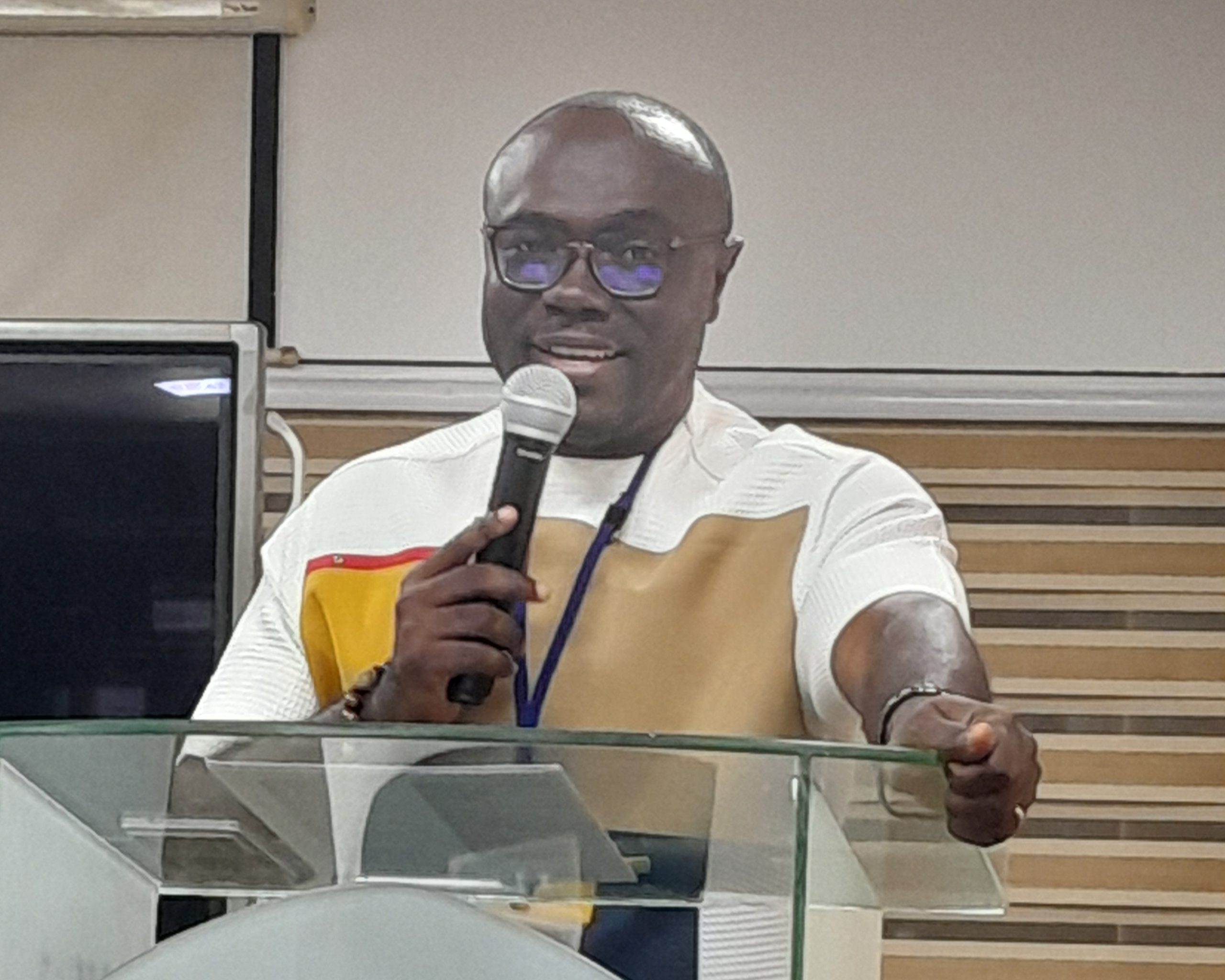
Accra, Ghana//-The Head of Marketing and Public Relations of the Ghana Stock Exchange (GSE), Jerry Boachie-Danquah, has urged financial journalists in the country to see their reports on the local bourse as a social cost.
“Don’t always look at the reward side. Your reward is in heaven. You are putting out reports out there to better the lives of people, and to transform lives”, he told members of the Institute of Financial and Economic Journalists (IFEJ) in Accra.
Mr Boachie-Danquah went on to say that if the financial journalists make one big mistake with an investment decision, it could ruin lives and businesses.
“If you don’t get the right information. That is how I want you to look at it. Always look at the bigger picture of the work you are doing. Always make sure that it’s driving you”, he advised.
Mr Boachie-Danquah also described the work that the journalists are doing for the Stock Exchange as a social cost.
“I always say that this job that you are doing for the Exchange is more than just a pay job. We are not paying you for anything. Even your institutions, whatever they are giving to you, are not worth what you have put in”, he explained.
Because the whole idea is putting information out there for the relevant stakeholders to understand our operations, understand what investment is, to understand how to raise capital, and once people do this, what happens we better their lives, we transform their lives. So, it is a social cost. That is how you should see it, according to him.
Taking the economic and financial journalists through a presentation, Managing Director of FirstBanC Brokerage Services Ltd, Edem Akpenyo, used the occasion to call on financial journalists to use compelling investment-related stories to redirect the youth to the right paths.
In his own words: “The journalist being able to use good storytelling to effect change will depend on him or her taking time to learn and understand the story so that he can tell it compellingly, in this case, understand the company model and how it makes money. For instance, a bank makes money by putting money at the best opportunity cost use”.
Key Sources of Corporate Information for Journalists
He mentioned that the key sources of corporate information for journalists are earnings reports and financial statements.
The earnings reports, according to experts, provide a periodic update of a company’s financial statements along with an income statement, cash flow statement, and balance sheet.
Every earnings report provides a summary of sales, income, and expenses for the latest period. The reports may also include a comparison with previous periods, they said.
Mr Akpenyo also urged the journalists to pay attention to income statements, balance sheets, and cash flow statements, which reveal the profitability, debt levels, and operational efficiency.
While asking them to use quarterly earnings reports, they should put their eyes on annual reports, which offer comprehensive business overviews, risks, long-term strategies, and material events.
“By effectively leveraging corporate information, journalists can empower readers to make informed investment decisions. Combining data analysis, storytelling techniques, and behavioural insights can transform dry financial reports into compelling narratives that encourage a culture of investing”.
Corporate information, often seen as dry data, holds immense potential for revealing insights into a company’s health, strategy, and prospects. For investors, this information is vital for assessing risk, identifying opportunities, and making informed choices, added.
Journalists act as interpreters and communicators, translating complex financial data into digestible and engaging stories, and therefore advised the financial journalists to never stop learning and unlearning.
Performance of the GSE
The GSE has recorded a strong performance so far this year, with the GSE Composite Index gaining 50.08% year-to-date, while the Financial Stock Index advanced by 43.30%. The Ghana Fixed Income Market also saw a significant increase in trading volume, reaching GH₵ 143.21 billion.


